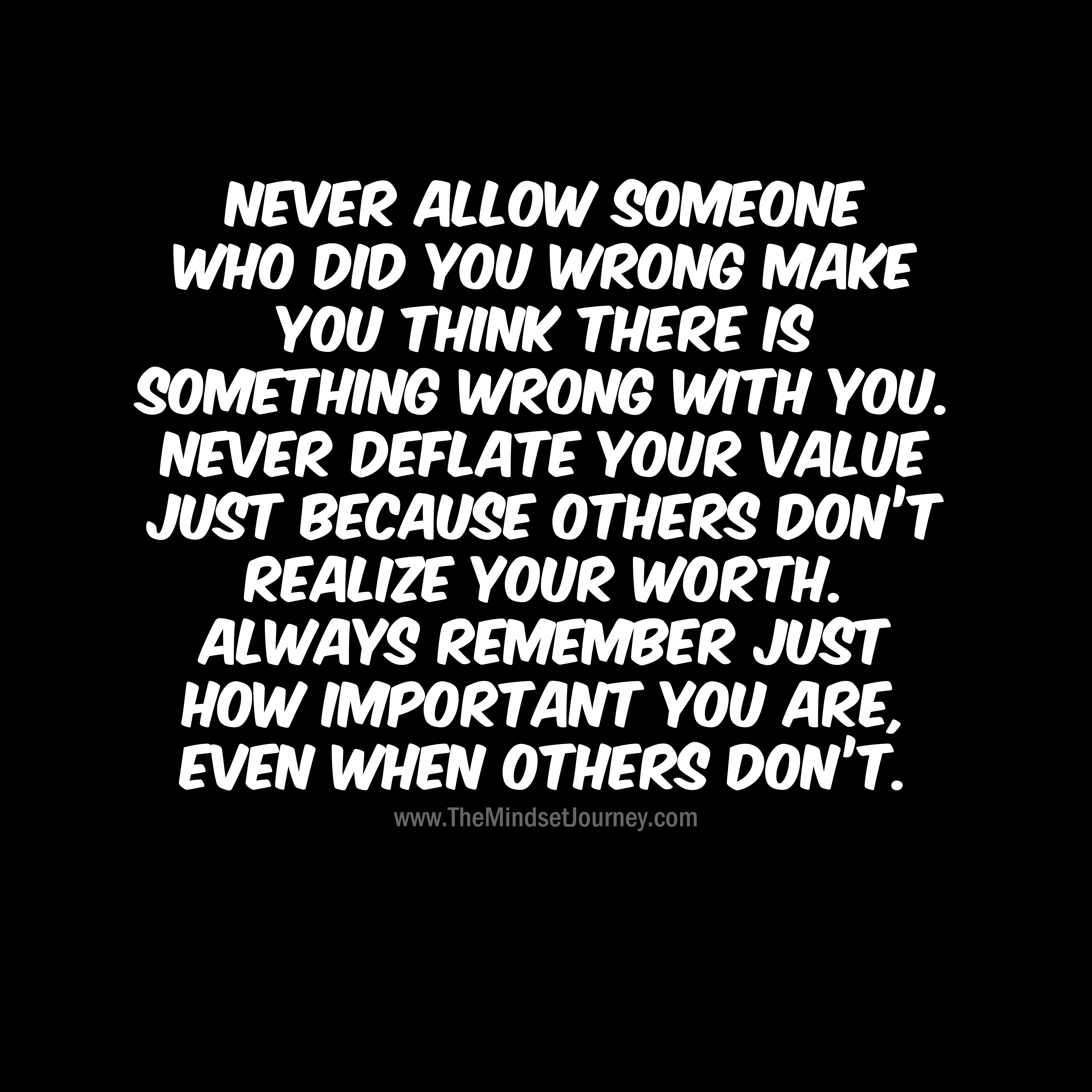Last Updated on September 16, 2022
There are many ways to respond when someone does you wrong. While confrontation may be tempting, there are also several other options. Silence can empower you. Instead of confronting the person who did you wrong, you can simply let the situation unfold. It is likely that you already know exactly what the person did not do, and you can control whether you address it or not. By choosing to remain silent, you make the person wonder what you’re thinking instead.
Commitment
If you are unsure whether or not your relationship is serious, you might need to consider whether you are willing to put a significant amount of work into it. You may not have a history of romantic commitment, but that doesn’t mean you’re not ready to commit. After all, a committed relationship requires sacrifices. And you might even want to consider making them in order to keep your relationship healthy. Here are some warning signs of a toxic relationship.
Your attachment style will help you to understand whether you’re really committed to a partner. Commitment issues can be caused by anxiety, avoidance, and security. People who are secure and attached tend to have better relationships. People who lack commitment issues tend to have higher levels of anxiety than those who are secure and committed. If you’re committed to your partner but they do something that bothers you, this may be a problem.
Having commitment issues can have many negative consequences. For instance, people with commitment problems might initially agree to a long-term romantic relationship but then withdraw months later. They may also avoid intimacy altogether. These behaviors can cause a great deal of emotional distress and lead to depressed or apathetic feelings. The best way to deal with commitment problems is to work on yourself and your partner. If you don’t feel like you can commit to another person, you’re in for a very painful relationship.
Commitment issues are often caused by childhood traumas. Therapy can help you identify the root of your fear and address it. Couples therapy can also help you overcome commitment phobia by helping you build stronger bonds with your partner. If you’re worried that your partner won’t be committed to you forever, it might be a good idea to seek help from a mental health professional. You’ll be glad you did.
Relationships with commitment problems are painful, frustrating, and traumatic. Your partner may not even know it, but it’s likely the result of a phobia. If you feel that your relationship is a phobia, it might even become a phobia. The fear of being hurt by another person may lead you to make poor decisions and to end the relationship altogether. When this happens repeatedly, it may even lead to self-destruction.
Empathy
Dealing with people who don’t show empathy can be frustrating. The lack of empathy can leave you feeling frustrated and disappointed. Fortunately, there are ways to develop empathy. You can practice your empathy skills by paying attention to other people’s body language, their tone of voice, and their habits. You can also try identifying common traits that people display. These skills will help you understand the feelings and actions of others. If you feel that a certain behavior is inappropriate or unkind, try these techniques.
While it may seem like the same thing, it’s important to know the difference between sympathy and empathy. Consider the following example. Your aunt recently broke her hip and has been immobile for months. Her fear of falling is more devastating than the actual injury. In this example, the person demonstrating empathy is showing the person that they are on the same team as them. The person receiving the comment is assured that they are not alone in their emotions.
People who lack empathy tend to believe that certain situations would never happen to them and that they are better able to handle the situation themselves. As a result, they are unlikely to understand the distress that others are feeling. They may act dismissively or even joke about someone’s emotions. They may also avoid actively listening to the person’s feelings. This type of behaviour may be detrimental to both parties. Instead, try practicing self-acceptance and avoiding situations that may cause you distress.
By observing how others behave, you can cultivate empathy. Your actions will become more caring and helpful when you consider others’ emotions. Empathy will also help you strengthen your relationships with other people. When you are able to feel the pain of another person, you will have a better relationship with them. By demonstrating empathy, you can help others achieve their goals. This will ultimately lead to a more fulfilling life.
To develop empathy, spend time observing the behavior of others. Try to understand the thoughts and emotions that are driving them. Ask yourself how you could help them. By doing this, you can cultivate your cognitive empathy, or intellectual awareness of others’ feelings. The more you do this, the better your ability to empathize with others will be. If you can learn to understand someone’s feelings, you can avoid many unpleasant situations that arise in life.
Kindness
Being kind to people in your life not only makes other people feel good, but it also boosts your mental health. Not only does being nice to other people make you feel better, but it also makes you more desirable. Kindness is more popular than money, physical attractiveness, and even sense of humor, and it correlates with happiness. Kindness acts can be directed toward friends, family, or even yourself. So, why not be kind to everyone?
In the world today, we are uncomfortable with the notion of injustice and good people not succeeding. But being kind requires that we remember our own follies and errors. This helps us make more compassionate judgments of others. Kind people also hold the intimate knowledge of what pleases them, and they use that to guide the way they think of other people’s needs. It takes a special kind of power to remain kind in the face of adversity.
Being kind to someone who has done you wrong is the right thing to do. This won’t just make them feel better, it will also give them a reason to apologize to you. And besides, a kind reaction will also make them want to do the same. It may even get them to apologize for doing wrong to you. That way, you’ll make their day! And if you’re not convinced that kindness works, try out the idea yourself.
It might surprise you to know that being kind to a person who does you wrong can change their behavior. Just a little kindness goes a long way in making them change their ways. Just think of the last time you did something kind to someone, and they’ll be surprised and happy you did. You never know when it will be your last opportunity to influence someone else’s behavior. You’ll see that it makes them think twice about doing something bad to you!
Be open about the benefits of your altruistic act. If you’ve performed a kind act in the workplace that led to someone being promoted, it would be nice to acknowledge that as a result. Otherwise, the person may come across as being intentionally manipulating their reputation. Just remember that self-righteousness is a symptom of faulty memory. It makes it harder to recognize when you’ve been in the wrong.
Curiosity
One of the greatest reasons for human behaviour is curiosity. We are driven by this human desire to learn new things, but it can also drive us to do terrible things. A psychologist named Harry Harlow once studied infant rhesus monkeys, which revealed that they preferred soft surrogate mothers. He called curiosity a “manipulative motive” that drives organisms to find puzzle solutions even when there is no tangible reward.
“Curious” is a universal, human trait, but it is not always helpful in solving problems. Sometimes, people do not understand why they are curious, and they will respond badly to a perceived slight. Ultimately, curiosity may even help us solve problems. Curiosity is often a good thing. However, it can lead to trouble when someone does you wrong. However, it is possible to overcome the problem by understanding why curiosity causes us to behave the way we do.
Ultimately, curiosity is important for our happiness. It is the spark of our creativity that drives us to try new things, regardless of how difficult they may seem. Without curiosity, we are prone to accepting the world as it is, rather than exploring the depths of its meanings. Curiosity is an important attribute to foster because it helps us learn and retain new information. Developing curiosity is also a great way to keep ourselves motivated and on the lookout for new opportunities and experiences.
One study has discovered that curiosity is the primary cause for people to seek out negative experiences and dangerous situations. This is based on their desire to resolve uncertainty, and it seems that curiosity makes people more likely to experience these types of experiences. The researchers studied participants’ responses to social experiences that provoke feelings of hurt and curiosity. As a result, participants who were more curious reported less aggressive responses. In contrast, those with less curiosity did not show any effect on aggression levels.
One study suggests that people who are curious have better social skills. This trait makes them more likely to read other people’s nonverbal cues. This is particularly useful for those who encounter strangers for the first time. Curiosity is a great quality to have, and it can lead to better relationships with new people. This curiosity will also help us recover from negative social experiences and foster positive ones. That’s why it’s important to maintain curiosity when someone does you wrong.
About The Author

Orochi Konya is a student of the web. He has been dabbling in it since he was young, and has become an expert in his own right. He loves all things digital, from making websites to programming to social media. In his spare time, Orochi enjoys indulging in his other passion: music. He loves listening to all kinds of music and often spends hours creating playlists on Spotify. He also enjoys drawing manga and watching anime in his free time. Orochi is a friendly pop-culture guru who is always happy to chat about the latest trends in both Japan and the U.S.

